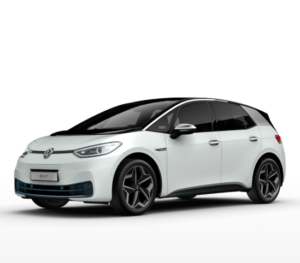
UK electric vehicles are on the cusp of a boom, with new company car tax rules driving growth.
To date, UK electric car drivers have tended to be early adopter private owners. Last year, battery electric vehicles and hybrids made up 3.1 per cent of new registrations, according to SMMT figures.
But as of this month, changes to benefit in kind (BIK) rates effectively give company car drivers a free car.
That has blown concerns around range anxiety out of the water, according to Arval consultant David Watts. As a result, the leasing company saw EVs nudge 10 per cent of total orders for the first two months of 2020.

However, that figure includes Arval’s retail operation, where BIK has no bearing. Within its business leasing operation, the firm is seeing “significantly higher” growth rates, says Watts, with EVs making up 14 per cent of its corporate business overall for January and February. “In one channel it is 20 per cent,” he adds.
Watts puts the surge squarely down to BIK changes, which mean company car drivers pay 0 per cent this tax year, only 1 per cent for 2021-22 and 2 per cent for 2022-23.
“It is amazing how people can make things work when it is free,” he said. “Overnight, those barriers around range and models have disappeared.”
As a result, Watts believes electric vehicles will “become the norm” for company car drivers over the next few years.
“Unless you have an horrific experience, you are not going back [to petrol or diesel].”
More models
As well as tax breaks, Watts says the ramp up from manufacturers is driving demand – with lead times less of an issue than some might believe.
Perceptions of lengthy waits were exacerbated when Hyundai launched its Kona and Kia its e-Niro. With limited numbers and high demand, both were effectively back off the market almost immediately.
That episode “tarnished EVs as a whole”, suggests Watts. Most other models, he suggests, are close to conventional lead times of around 8-12 weeks. “Anything up to six months people are okay with,” says Watts, “it is only when it gets longer that it becomes a problem.”
Watts says as more EVs come to market, “you spread the pressure” on individual models, “so that position is only ever going to improve”.
Pricing
Manufacturers say they are not making any money from EVs – but that is due to high investment and lack of scale. Watts points to Volkswagen, which last year started production of its ID.3 and next year aims to produce 330,000 EVs a year from its Zwickau plant.
“That’s the same ball park as the diesel models it was producing. Once you have that volume, the economies of scale start to kick in, and battery prices continue to fall,” says Watts. “So they ought to be making money.”
That means prices should improve. But for company car drivers, Watts believes “as long as companies are operating on a whole life, total cost of ownership basis, the cars will always fit within a grade somewhere.”
For the next couple of years, as OEMs ramp up and model range remains relatively limited, he thinks drivers “will be willing to compromise in order to access the technology due to extremely cheap tax”.
Keep it simple
Watts believes there is a tendency to overthink incorporating EVs into company car policy, and dealing with reconciliation.
“My standard message is keep it simple. It is just a car that you fuel slightly differently. People think you have to put a raft of new policy in place, but I don’t think that is the case,” says Watts.
“As long as the vehicle is in the right place in terms of grade structures and choice, there isn’t much else you have to do, other than mileage reimbursement at the government rate, 4p/mile, claimed through expenses.”
He says policies should just make clear to employees that if they are choosing an electric vehicle, they must accept and adjust to the differences that will entail.
“I don’t think that there should be any rule bar one: It is your choice, so you have to make it work. Drivers will need to behave differently, but as long as they are making an informed decision, they will be fine,” says Watts.
“You don’t need to profile them, or check if they have off street parking. That is just another can of worms. Keep it simple. It is all about the education.”
David Watts is one of many experts interviewed for The Energyst’s forthcoming 2020 EV report, to be published in June as a free download. We’re asking readers to help form the report’s research component by taking this 5 minute survey. Help us create an accurate market snapshot, take the survey here.




You said correctly. This is because the demand for electric vehicles has increased.